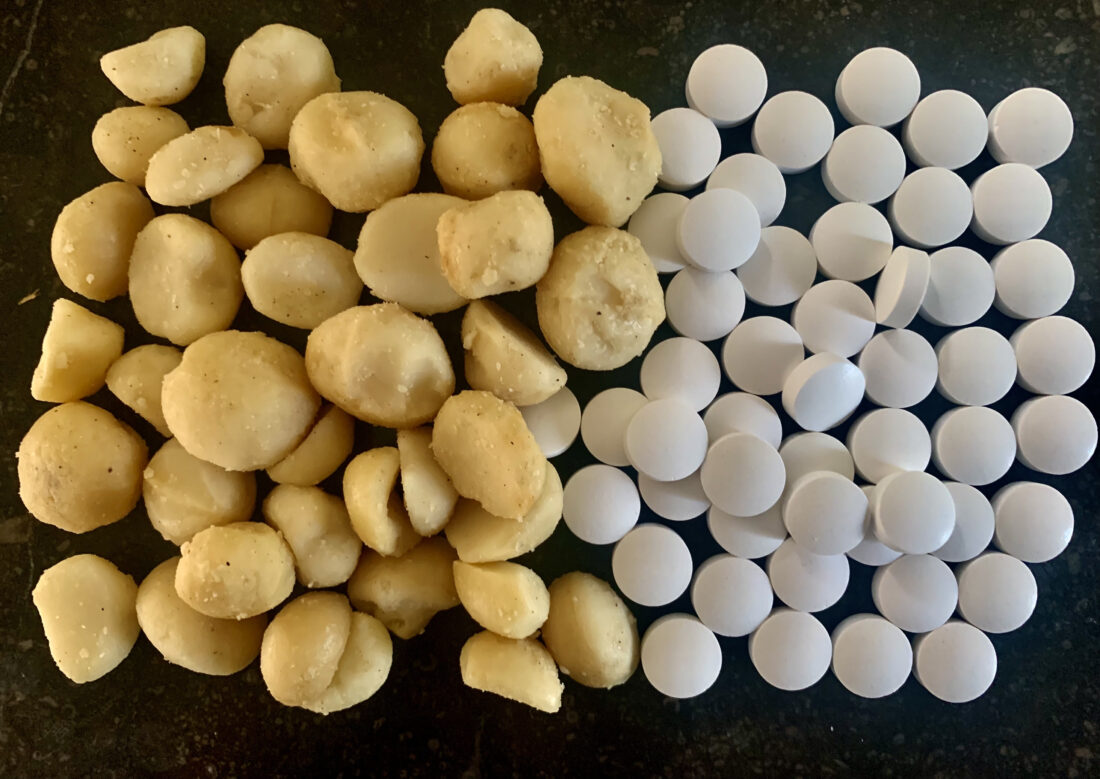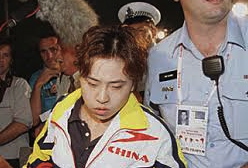
The anti-doping schism grew today when founding president of the World Anti Doping Agency (Wada) Dick Pound accused the United States Anti-Doping Agency of “lies and distortions” designed to undermine the global regulator.
His comments sparked another backlash from Usada.
A former Commonwealth 100m freestyle champion for Canada, Pound was speaking at extraordinary meeting of the Wada Foundation Board, held online in the presence of media, to reflect on the dispute over Wada’s decision to declare 23 Chinese swimmers who tested positive for banned heart booster trimetazidine (TMZ) in January 2021 as “no fault” cases.
The key reasoning was that unverifiable evidence from China that what might otherwise have been registered as adverse findings were down to mass contamination; and under the circumstances, a challenge at the Court of Arbitration for Sport (CAS) would fail the burden of proof test.
Chinada reported back to Wada in June a month out from the Tokyo Olympics, Wada and World Aquatics accepted Chinada’s evidence, provided by agents from the Chinese Ministry of Public Security, and the 23 cases were sealed, the file stamped ‘confidential’.
All those among the 23 who qualified to race for China at the Tokyo 2020ne Olympics did so – and 13 of them made the team for the Paris Games at trials last month as the latest China Crisis unfolded in the wake of an investigation by German broadcaster ARD and its Doping Investigations team, in cooperation with the New York Times.
“Doping Top Secret – The China Files” – Parts 1-4
After the news broke on April 20, Wada acknowledged that it had accepted the arguments from China, conducted its own inquiries with various experts, in law, pharmaceuticals and other areas pertinent to the cases, and admitted that it could not conduct its own direct investigation in China at a time of Covid restrictions.
Usada boss Travis Tygart believes that the situation should have resulted in provisional suspensions and a challenge at the CAS. He called the situation a “potential cover-up” and called for a comprehensive review of Wada.
Pound, a retired lawyer who served as Wada president through scandals Chinese and Russian in the first two decades after the foundation of the global clean-sport regulator in 1999, said today: “On behalf of WADA, I am deeply disappointed and disgusted by the deliberate lies and distortions coming from Usada, including that Wada has swept doping cases in China under the rug.”
“That accusation, bereft of any truth, has but a single purpose, to deliberately damage the reputation of WADA and to lessen the worldwide trust that has been built up since WADA was created a quarter of a century ago to head up the international fight against doping in sport.
“The claim that WADA has in some way inappropriately favoured China is completely false. WADA applies the World Anti-Doping Code and the related standards in an even-handed way.”
Pound said that WADA’s past actions against doping cases in Russia proved that “Superpowers are treated the same way” as other nations.
Usada hit back with a statement that reads:
“As predicted, WADA is much better at circling the wagons than they are at actually being transparent. The fact is that WADA leaders violated their own rules by, at a minimum, not finding any violations or publicizing the cases. This is self-evident, no matter how many times or how angrily WADA denies it and replays its scripted efforts to convince the world everything is okay.
“Trust comes from truth and transparency, not obfuscation and childish bluster. Unfortunately, we all know that when you are afraid of the facts, the classic response is to attack the messenger, distract from the real issues, and make it personal.
“That’s exactly what we continue to see from WADA. And most devastating, WADA has now resorted to attacking athletes, the very people it is supposed to protect.
“Today’s meeting further demonstrated that the global anti-doping system is as broken as ever and needs immediate reform. Along with athletes of the world, we have asked for basic answers and transparency.
“The world has legitimate questions about how WADA could turn a blind eye to 23 positive tests on the eve of the Tokyo Olympic Games, and today, WADA reinforced those concerns by admitting they purposefully tried to keep this information from going public—the very definition of sweeping it under the carpet.
“Instead of threats and attacks, we call on WADA to actually lead by taking action and to provide real answers by producing the full China file for the world to evaluate.”
In the extraordinary meeting, Pound noted that China had brought the cases to WADA originally.
“What evidence has been produced to suggest that China has benefited in any way? Unlike many other cases in other countries, the Chinese (anti-doping body) reported positive tests in the WADA system. Nothing was hidden.
“The Chinese investigation led to a conclusion of contamination, not doping. The evidence pointed firmly in that direction. None pointed to doping,” he said.
Current president of Wada Witold Banka said that he had been previously attacked by Russian officials and by Chinese fans of Chinese swimmer Sun Yang, who received a doping ban. Death threats were mentioned. Banka continued:
“Today it is the US Anti-Doping Agency which accuses WADA of bias towards China…so perhaps all the abuse that WADA receives is the best proof that we are a truly independent organization. There are gaps in harmonising anti-doping policy globally…including in the United States where the great majority of these unsubstantiated and defamatory attacks have been coming from.”
He then rattled out statistics that criticised the USA: “In the U.S, 90 per cent of American athletes, those in the professional leagues and college sport, do not compete under the World Anti-Doping Code. 31 per cent of American athletes under the code, were not sufficiently tested in the 12-month period prior to the Tokyo Games, according to the data which is available to us.”
He said Wada’s studies had found “There are massive, massive purchases in the U.S market for PED’s (performance enhancing drugs) and pharmaceutical products”.
Editorial: Of Wada, Wagging Tails & Barks Without Bite
In the questions session after the main presentations, Chinese Foundation Board member Li Yingchuan, a former vice-minister in the Chinese Administration, went unchallenged, however, when he said that China had “always” stood for clean sport and upholding the Wada Code.

Sadly, the record of China in swimming alone suggests such a statement should be taken with a massive punch of salt. In the 1990s alone, more than 100 positive tests for highest-level banned substances were returned by Chinese teenage swimmers, most of them girls. Not only was cheating and the associated abuse of under-age athletes rampant but many of the coaches and doctors said to have been banned when multiple positives were discovered contain red to work with underage athletes during periods when they should have been serving suspensions and having no contact with athletes at all.
Investigations at the time proved that state officials were among those found to have fallen well shy of the truth, the State of Swimming archive confirms.
Meanwhile, the questions from foundation board members and one man who appeared on screen and declared himself to be there “representing” a board member without actually revealing who he was, largely reminded one of that wonderful line from the film version of the 101 Dalmatians starring Glenn Close that has Cruela asking her male secretary “What kind of sycophant are you?” only to be asked in turn “what kind of sycophant would you like me to be?”
Obviously, it depends how you see it, and this is how Wada sees it:
Support from Foundation Board on Chinese swimming case
That statement notes that WADA Athlete Council representative on the Board, Patrick O’Leary, spoke some soothing words and expressed hope that the investigation being led by retired Swiss prosector Eric Cottier “will be able to provide the clarity and certainty we need.” He concluded: “It is important, therefore, that we reserve judgement and give him the space he needs to conduct that independent process in advance of the 2024 Olympic Games in Paris.”
The IOC in-house athlete representative welcomes Wada’s commitment to widening the numbers of athletes voices that might now be heard on the matter at hand.
Athlete praising athletes for their group’s handling of the heated debate was also a brushstroke on a canvas that at times lacked maturity of approach, self-awareness and, well, knowledge.
There was fretting over the legality of “private data” of the Chinese athletes (their names) being published by media far and wide but without any mention of the many athletes who have raised the matter of being “held to a different standard” than the Chinese; and without any apparent appreciation of the public interest argument in a story at the heart of the Olympic saga and a realm which places victory and the fame that comes with it centre stage once every four years during one of the most televised events in world broadcasting.
Gaps in the WADA Code were mentioned by a few delegates, the Canadian representative, Carla Qualtrough, Minister of Sport and Physical Activity, urging constant review of processes and aspects of the Code that may have contributed to the current dispute.
The only serious challenge to Wada came from Darren Mullaly, representing Anika Wells
Minister for Sports for Australia. Mullaly asked why the Wada Executive Committee was never told about the Chinese cases in 2021. Wada Counsel Ross Wenzel, who sounds like a welcome grown-up voice in a kindergarten of needy developers at times, is nothing if not honest: the wider the group of those who knew, the greater risk of leaks.
That strategy may have seemed logical at the time but as things turned out, it didn’t go well. The “leak” simply took longer to emerge and now not only threatens to cause controversy at one Olympics but two.
Mullaly also raised another burning question: what is the Wada standard on how to deal with contamination cases. Should, he asked, national anti-doping agencies impose a sanction based on liability rules in place or, he inferred in so many words, does everyone who can point to contamination and in-house evidence void of any independent investigation get a free pass.
The question was left hanging but it can only swing so long before the bough breaks.
Perhaps the most disturbing aspect of the Wada session was the apparent hunger to track down and punish “the source” of the information that led to the 23 cases being placed in the public domain. While that perspective may be logical to the Wada leadership, the potential for a blind spot leading the sighted was all too tangible: where does the pursuit of those acting out of a belief that truth and transparency have been tested fit with the notion of the ‘whistleblower’ as a protected species by independent investigators whose work feeds into Wada decision-making?
More on the session today and the issues raised in upcoming coverage.